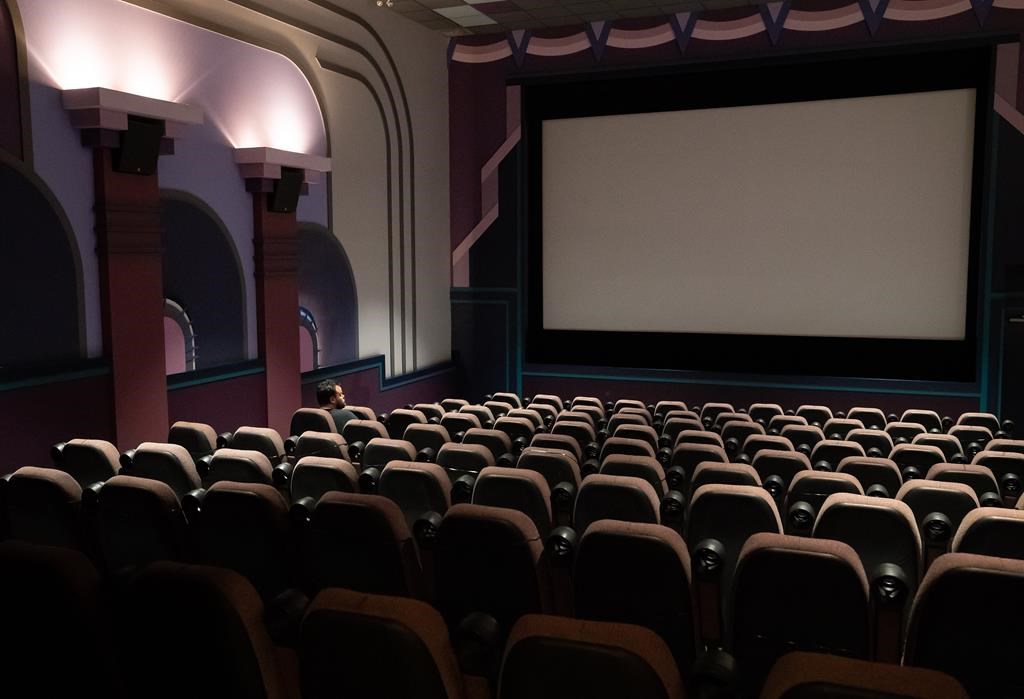Canada’s independent cinema chains are ‘in crisis,’ need more funding: study

TORONTO — A new study from Canada’s independent cinema owners says their industry is “in crisis” and many theatres need increased public funding to stay afloat.
The research from the Network of Independent Canadian Exhibitors released Tuesday said 60 per cent of independent cinema operators surveyed between December and February operated at a loss at the end of their most recent fiscal year.
About two-thirds of the 67 respondents reported that they need increased public funding in order to remain operational. The bulk estimated they would need about $50,000 in extra funding annually for three years to close the immediate gaps they face.
Advertisement
Sonya William, a director at NICE, said the research paints a picture of a “really stark” fiscal landscape, which stands to worsen if policy changes aren’t made and funding doesn’t pick up.
“We think it’s a really important time for us to raise the alarm and to say please pay attention to what’s happening with film exhibition in this country,” she said.
NICE’s research comes as the industry is recovering from the COVID-19 pandemic, which temporarily closed theatres in many regions, and as a succession of arts organizations in Canada have lamented a lack of funding and a struggle to survive.
Last week, the president of Hot Docs, Canada’s largest documentary film festival which runs a year-round cinema in Toronto, wrote a note to audiences saying its future is in jeopardy.
“While we’ve taken steps to reduce our overhead without impacting our core programming, we are quickly losing runway and urgently need direct support to ensure our future viability,” Marie Nelson wrote in a March 8 missive.
Advertisement
To resolve such issues, NICE is pushing for the elimination of clean runs, which occur when studios demand two-, three- or four-week runs for films.
A clean run is when an independent theatre can only show one film during every showtime and as part of the practice, NICE said studios will deny any request to spare a single screen for other movies.
“If it’s a single-screen cinema in a small community … it’s really hard for a cinema to sustain a film for that long,” William said.
Some 81 per cent of survey respondents reported being impacted by clean runs and almost the same amount said it weighs on the fare they program. Sixty-two per cent said it would be “paradigm shifting” or “very much” impactful, if the practice ended.
The group is also calling for the elimination of zone provisions, which keep exhibitors from playing films when another nearby is still screening the movie.
Advertisement
“Zones are a bit of a shadowy system. Unfortunately, nobody has ever seen a map of zones in Canada,” William said.
“They just exist by the rules that are created around them.”
NICE’s research revealed 53 per cent of its respondents routinely have to wait for Cineplex, the country’s largest cinema chain, to stop showing a film in their zone until they can screen the same movie.
Cineplex declined to comment.
The ramifications of zones were on full display over the summer, when hit films “Barbie” and “Oppenheimer” drove massive audiences to theatres, breaking several audience and box office records.
Advertisement
“A lot of these cinemas within our network were not able to show those films that would have really been able to bring up their bottom line and would have made their financial situation much more positive at the end of last year,” William said.
This report by The Canadian Press was first published March 12, 2024.
Tara Deschamps, The Canadian Press